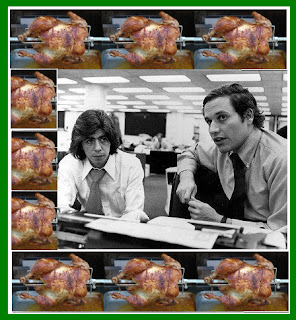Ever since I subscribed to Groupon a few months ago, I've been receiving short, witty blurbs in my Inbox everyday, each enthusiastically describing bargains and deals for restaurants, spas, and various types of instruction.
Little did I realize that the people writing those Groupon blurbs represent a new wave of journalism, and that Groupon itself is becoming one of the biggest employers of journalists (and creative writers) in the country. An article in the Dec. 20th The Atlantic ( Forget Journalism School and Enroll in Groupon Academy - Elizabeth Weingarten - Technology - The Atlantic ) states that "Forty percent of Groupon's writers have prior journalism experience, 70 percent were creative writers and 20 percent wrote marketing or business copy." Groupon's CEO even declares in the article that the "most well-read publication now might be Groupon."
Many of the Groupon "deal" blurbs are clever and cute, but a long and steady diet of what the article calls this "hybrid journalism-advertising prose" is getting a little cloying and wearisome for me. Each blurb is, essentially, a clever lede (journalism-speak for a catchy and/or mood-setting first paragraph of a story) that leads to a mere classified ad/description. Some recent examples:
Herbert Hoover won America's hearts and votes when he promised a college-educated chicken in every pot and a kayak in every garage. Get a taste of the American dream with today's Groupon...
Eating with your hands is a joy second only to playing a woodwind instrument with your feet. Dig in with all four hands with today's Groupon: for $15, you'll get $30 worth of Ethiopian food...
Defy the whitening forces of winter and transform yourself into a bronzed god, goddess, or Gilbert Gottfried with today’s Groupon...
Photographs provide a more concrete way of recording recollections than sketching portraits in sand or dictating memoirs to an empty jam jar. Preserve precious memories with today's Groupon...
Should I really complain? It may not be poetry or even good journalism, but at least writers are getting work (and I am, occasionally, getting organic rotisserie chicken and other such succulent delights for 50 percent off...).







